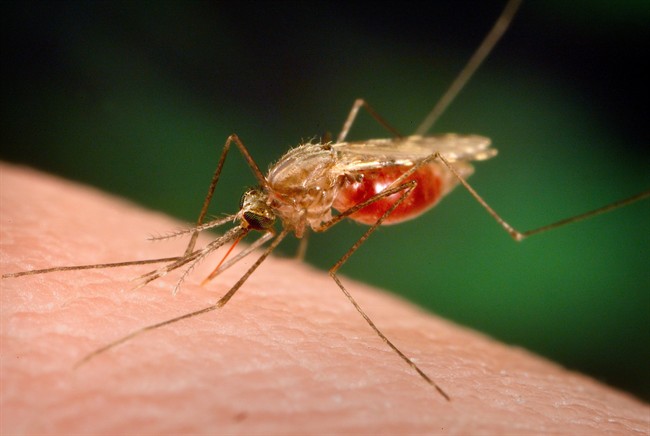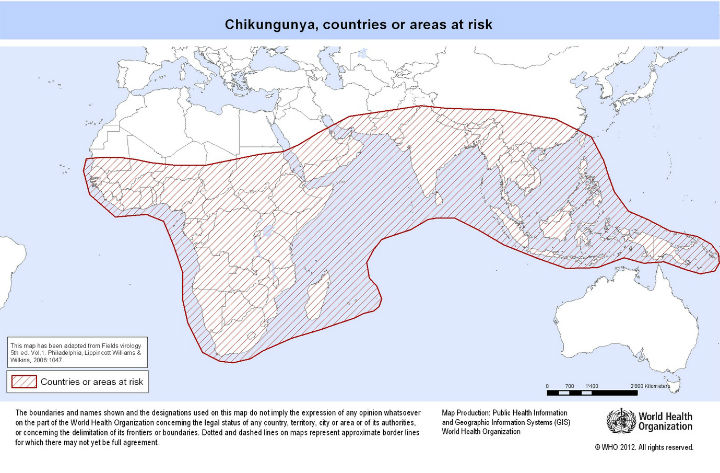A new travel warning has been issued for people travelling to the Caribbean island of St. Martin.

The U.S. Center for Disease Control (CDC) issued a watch after 10 cases of the mosquito-borne chikungunya virus were reported on the French side of the island.
A similar notice has also been issued by Canada’s Dept. of Foreign Affairs.
“The World Health Organization has reported 10 confirmed cases on the island. Testing to confirm other suspected cases is ongoing,” the CDC said Wednesday.
It’s the first time the virus — which is normally found in areas of Asia, Africa and islands in the Indian Ocean and Western Pacific — has been found in the Western Hemisphere.
“The affected St. Martin residents had not traveled recently, suggesting that chikungunya virus is now present in island populations of mosquitoes and is being spread locally. Further spread on St. Martin, to other Caribbean islands, and to the surrounding mainland areas is possible in the coming months and years. The mosquitoes that spread it are also found in some areas of the United States,” the CDC said in a statement on its website.
The virus causes “abrupt onset” of fever and severe joint pain, similar to arthritis, but some people may also experience muscle pain, nausea, headaches, rash or fatigue.
“The joint pain is often very debilitating, but usually ends within a few days or weeks,” the World Health Organization (WHO) said on its website.
- Ultra-processed food tied to higher risk of early death, study finds. What to avoid
- N.S. couple felt they won ‘doctor lottery’ after years on wait-list. Now they’re back on it
- Panera to remove ‘Charged Sips’ drink from Canada amid wrongful death lawsuits
- A ‘zombie’ virus is raging among raccoons. What to know
WHO said chikungunya patients generally recover in full, usually in about a week, and treatment is focused on the relief of symptoms.
But, some people may suffer long-term joint pain as a result of becoming infected. The CDC said it is rarely fatal.
The CDC notice is only a “Level 1” or watch, meaning travellers should “practice usual precautions.”
That includes using mosquito repellent and wearing long-sleeved shirts or long pants at times when mosquitoes are prone to bite — early morning and late afternoon/evening.
Silviane John, director of the St. Martin Tourist Office, told The Associated Press both sides of the island are cooperating closely to reduce mosquito breeding sites and increase public awareness about the importance of dumping out stagnant water. Mosquito fogging trucks are frequently seen on the streets, she said.
“It’s a concern for us right now, for sure. We haven’t heard of any cancellations from hotels or airlines so it is a wait-and-see game,” John said from St. Martin, where many of the visitors are French as well as Americans or Canadians escaping from the northern cold.
St. Martin’s government was drafting a letter to airlines letting them know how they are battling the spread of the virus, John said.
The island is already battling an outbreak of dengue fever commonly spread by the Aedes aegypti mosquito, which also spreads chikungunya, The Associated Press reported.
The CDC said it has been preparing for the arrival of the virus in the region since 2006 and created guidelines, with the assistance of the Pan American Health Organization (PAHO), in 2011.
The CDC has in the past documented cases of chikungunya in the U.S., but all were in travellers.
*With files from The Associated Press






Comments